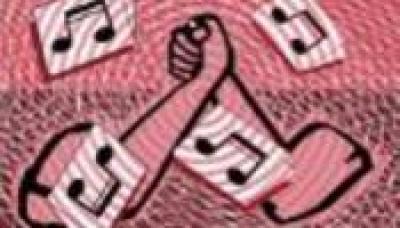Ofcom Makes ‘Three Strikes’ Rules For Digital Economy Act

Ofcom has drafted a proposal for tackling illegal file-sharing and copyright infringement, in accordance with the Digital Economy Act
The regulator Ofcom has published a draft of its code of practice for tackling copyright infringement over the Internet, including a ‘three strikes’ rule, which could see persistent infringers being taken to court for illegal file-sharing. Ofcom said the code should come into force in early 2011.
Under the code, which puts into practice the terms of the Digital Economy Act, the IP address of anyone caught committing online copyright infringement three times will be added to a ‘blacklist’ held by their Internet service provider. Copyright holders, including music firms and film studios, will then be able to access the list and issue a court order to begin further legal action.
“It is imperative that a system that accuses people of illegal online activity is fair and clear,” Anna Bradley, chair of the Communications Consumer Panel, told the BBC.
Large ISPs held to account
 Initially, the code will only apply to fixed ISPs with more than 400,000 subscribers. This includes BT, Talk Talk, Virgin Media, Sky, Orange, O2 and the Post Office, which together cover more than 96 percent of the UK market. However, the code could be extended if infringement on smaller networks increases.
Initially, the code will only apply to fixed ISPs with more than 400,000 subscribers. This includes BT, Talk Talk, Virgin Media, Sky, Orange, O2 and the Post Office, which together cover more than 96 percent of the UK market. However, the code could be extended if infringement on smaller networks increases.
According to the code, evidence is needed before any action is taken, and ISP customers have the right to appeal to an independent body.
The three accusations of illegal file-sharing do not have to come from the same source, but once three are made, any of the organisations can apply for a court order to reveal the perpetrator’s identity. ISPs will be required to keep a record of accusations for a year from when they are made, while rights holders must pass their evidence to ISPs within 10 days of it being gathered.
In its description of the three strikes rule, Ofcom’s code does not suggest that individuals’ Internet connections should be cut off as a punishment for file-sharing, as was previously suggested in the government’s Digital Economy Act. This clause has been one of the main sticking points for protesters against the Act, particularly among those who believe that Internet access should be a fundamental human right in the UK, as it is already in Estonia, France, Finland and Greece.
Wi-Fi hotspots still an issue
However, there are likely to be further obstacles to implementing the code, as protesters have also warned that the Act could mean the end of free public Wi-Fi – and potential problems for consumers running an unsecured Wi-Fi access point – as hotspot owners could be liable for any illegal activities carried out by their customers.
BT has criticised this oversight in the government’s plans to tackle illegal file-sharing in the past, warning that “the implications of the current proposals on a variety of businesses and activities have not been properly thought through”.
“It is clearly unfair that any site offering Wi-Fi, and any of their customers enjoying the service, should lose their access because of accusations against individual users,” added BT.
It is possible that Ofcom’s decision to initially exempt smaller ISPs – such as The Cloud – and mobile broadband operators was taken in order to give itself more time to resolve the problem of single IP addresses being shared between multiple users.
The practicalities of collecting data on illegal file-sharers could also prove problematic for Ofcom. While Virgin Media has publicly stated that it is trialing new technology from Detica that will allow it to monitor file-sharing over the Internet, other ISPs such as TalkTalk remain resistent to the proposal of spying on their customers.